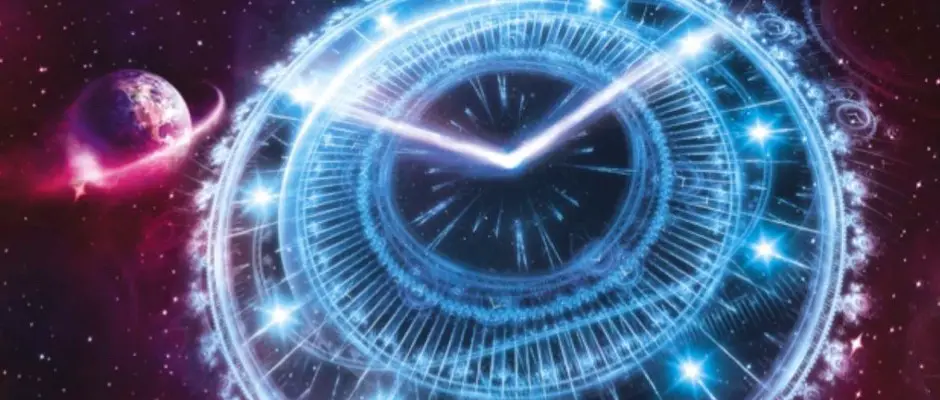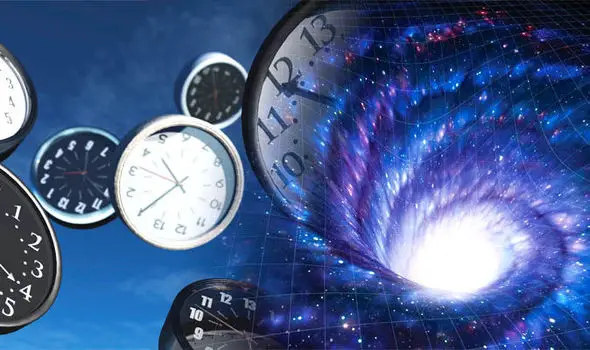Have you ever wondered what time really is? Is it a fundamental property of the universe, or a human invention? Is it something that flows inexorably from the past to the future, or a flexible and subjective concept? And if time does not exist, how can we make sense of our lives and the world around us?

Table of Contents
In this article, we will explore some of the scientific and philosophical arguments that challenge the notion of time as we know it, and suggest some alternative ways of thinking about it. We will also discuss why time does not exist does not mean that nothing matters, and how we can still find meaning and purpose in a timeless reality.
What is time?
Before we can question the existence of time, we need to define what we mean by it. Time is usually understood as a dimension that measures the sequence and duration of events. It is also related to the concepts of change, causality, and entropy. Time is often represented by a clock or a calendar, which are devices that synchronize human activities with natural cycles.
However, time is not as simple or objective as it seems. Different observers may experience time differently, depending on their relative motion and gravity. This is known as time dilation, and it is one of the consequences of Einstein’s theory of relativity. For example, an astronaut orbiting the Earth at high speed will age slower than someone on the ground, because their clocks will run at different rates.

Moreover, time is not independent of space, but rather part of a unified entity called spacetime. Spacetime is a four-dimensional continuum that describes the geometry of the universe. In spacetime, there is no absolute present, past, or future, but only events that occur at different locations and times relative to each other. The order and duration of these events may vary depending on the observer’s frame of reference.
Why does time not exist?
One of the main arguments that time does not exist comes from quantum physics, which is the branch of science that studies the behavior of subatomic particles. Quantum physics reveals that the world at the smallest scales is probabilistic and indeterminate, meaning that events do not have definite outcomes until they are observed. This implies that there is no objective reality or history independent of observation.
Furthermore, quantum physics suggests that there is no fundamental distinction between past and future, but only correlations between events. For example, quantum entanglement is a phenomenon where two particles can share a quantum state and influence each other instantaneously, regardless of their distance or time. This means that the effect can precede the cause, or that the cause can depend on the effect.
Another argument that time does not exist comes from thermodynamics, which is the branch of science that studies the flow of energy and entropy in systems. Entropy is a measure of disorder or randomness in a system, and it tends to increase over time. This is known as the second law of thermodynamics, and it is often used to explain why time has a direction or an arrow.
However, some physicists argue that entropy and the arrow of time are not fundamental features of nature, but emergent phenomena that result from our limited perspective and knowledge. They claim that if we had access to all the information in the universe, we would see that entropy does not always increase, and that time does not have a preferred direction. In other words, entropy and time are subjective illusions created by our ignorance.
How can we live without time?
If time does not exist, how can we make sense of our lives and the world around us? How can we cope with the paradoxes and contradictions that arise from a timeless perspective? And how can we find meaning and purpose in a reality where nothing happens or changes?
One possible answer is to adopt a more holistic and relational view of existence, where we focus on the connections and patterns between events rather than their sequence and duration. We can also recognize that our perception and experience of time are shaped by our culture, psychology, and biology, and that they are not absolute or universal. We can appreciate the diversity and richness of different temporalities and rhythms that coexist in nature and society.
Another possible answer is to embrace the uncertainty and creativity that come from a timeless perspective. We can acknowledge that we are not bound by a fixed destiny or fate, but rather have the freedom and responsibility to create our own reality through our choices and actions. We can also realize that we are not isolated or separate from the rest of existence, but rather part of a larger whole that transcends space and time.
In conclusion, according to science, time does not exist (but that’s okay). Time is not a fundamental property of the universe, but a human invention or illusion. Time is not something that flows

